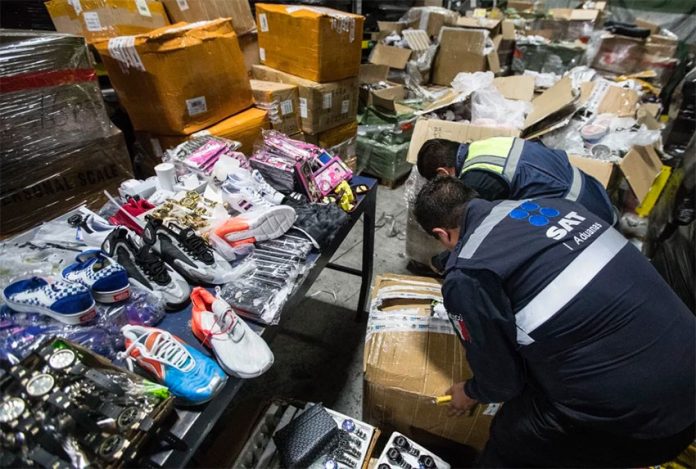Customs authorities have identified three cargo airlines that are believed to be bringing pirated goods into the country via the Mexico City International Airport (AICM).
The three airlines are Cargolux of Luxembourg, Cathay Pacific Cargo of Hong Kong and Panalpina of Switzerland but it is unclear whether authorities have initiated investigations aimed at prosecuting them for bringing illegal goods into Mexico.
The newspaper El Universal reported that customs authorities identified the airlines as smugglers of counterfeit goods during an inspection operation carried out in April at 18 locations across the country including the Mexico City airport.
Authorities also identified three warehouses where the pirated goods are stored prior to dispatch and seized more than 45 tonnes of counterfeit merchandise including clothes, shoes, watches, jewelry, bags and mobile phone accessories.
Customs said that the seized goods had a value of around 200 million pesos (US $10.1 million) on the black market.
El Universal said in another report published Tuesday that the federal Attorney General’s Office (FGR) is investigating a network within the General Customs Administration that during the past three months has allegedly relaxed the inspection of goods entering Mexico via the AICM.
According to information obtained by the newspaper, complicity between several criminal groups and corrupt customs employees has facilitated the illegal import of weapons, drugs and counterfeit goods.
In the same period, there was a marked reduction in the collection at the airport of value-added taxes that should be applied to both imports and exports.
The FGR has six active investigations against current and former customs officials at the AICM, while 18 former customs employees have already been prosecuted for corruption during the administration of the federal government.
Widespread corruption within customs led to a proposal from the Secretariat of National Defense for retired military personnel to take up leadership positions at customs offices. The Federal Tax Administration (SAT), which has responsibility for customs, agreed to the idea last month.
However, experts warn that not even former military personnel are immune from the influence of criminal organizations that operate at the nation’s airports, ports and border crossings.
Source: El Universal (sp)
